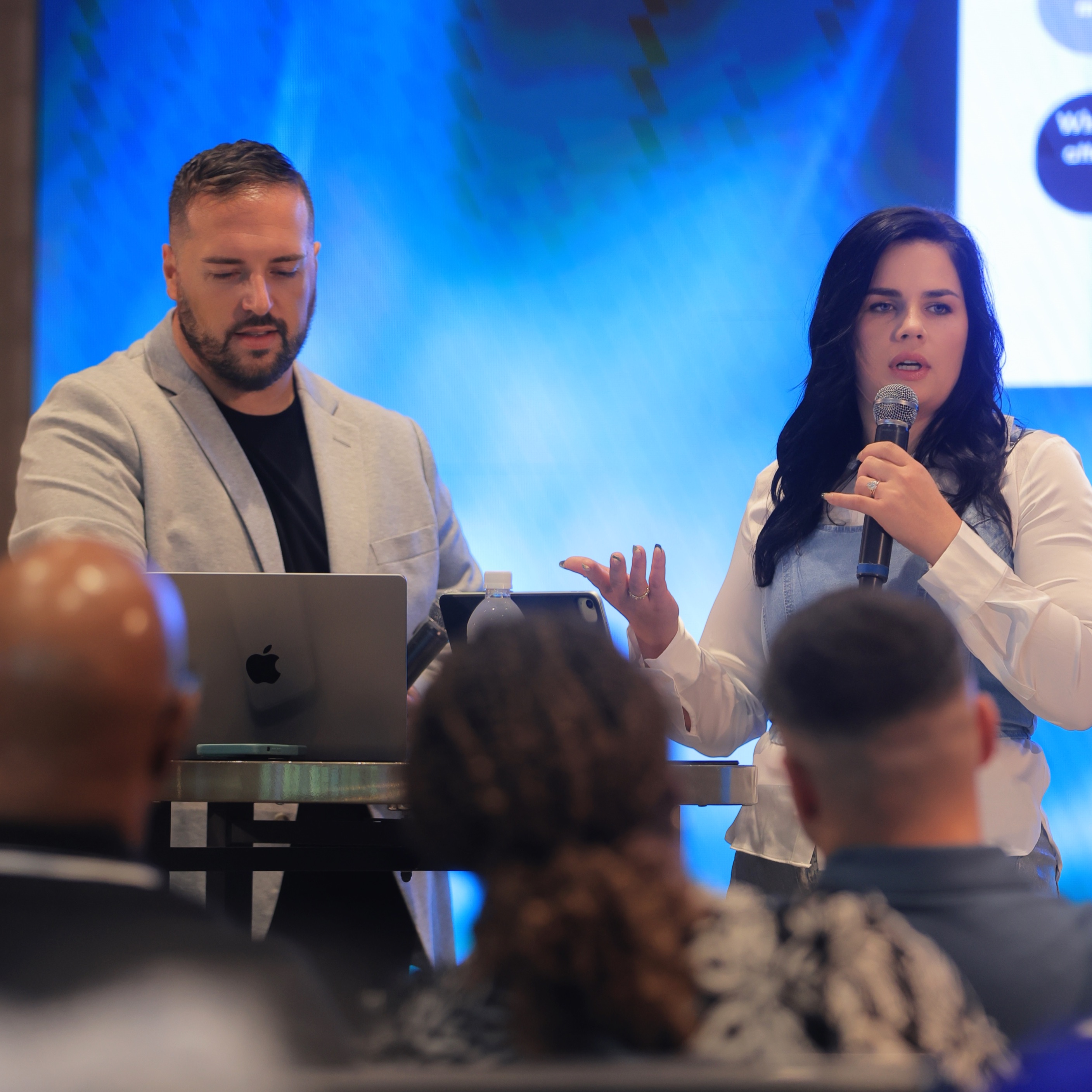
Our Vision & Mission
Abiding Culture Church exists to nurture a people who live deeply rooted in Christ, grow together through meaningful relationships, and carry His presence into every sphere of society.
We believe lasting transformation begins in the secret place, is cultivated around the table, and moves outward to restore families, influence culture, and reveal the heart of God to the world.
Our mission is to build a culture of abiding—where every believer learns to dwell in the secret place, walk by the Spirit, and live a life of worship in every environment.
We gather around the table for authentic discipleship and communal life, and we assemble for worship, the Word, and the demonstration of the Spirit’s power. We equip believers to grow from citizenship to discipleship to ambassadorship—empowered to impact systems, raise healthy families, and release the Kingdom of God wherever they go.
Beliefs
At Abiding Church, we affirm the entire Bible as God’s Word. The Old Testament is not only history but a revelation of God’s covenant purposes, prophetic patterns, and Kingdom principles. The New Testament fulfills what was promised, revealing Christ as the center of Scripture and establishing His Church to live and govern by His Word. Our beliefs, as listed, are all grounded in the scriptures.
The Bible
We believe the Bible is the inspired, infallible, and authoritative Word of God, written by human authors under the supernatural guidance of the Holy Spirit. It is without error, eternally true, and reveals God’s covenant, His Kingdom, and His plan of redemption through Christ. The Old and New Testaments together provide both the history of our faith and the divine guidance for our present and future, remaining living and relevant for every generation.
Scripture References:
Deuteronomy 4:1–2; Psalm 119:89, 105; Isaiah 40:8; John 17:17; 2 Timothy 3:15–17
The Godhead / Trinity
We believe in one eternal God who exists as three persons: Father, Son, and Holy Spirit. They are one in essence and nature, equal in power and glory, and without beginning or end. Within the unity of the Godhead, there is divine order: the Son is eternally begotten of the Father, and the Spirit proceeds from the Father (and the Son), willingly carrying out the will of God in perfect harmony. The Father is the source of all, the Son reveals and redeems, and the Spirit empowers and sanctifies—yet all three are fully and truly God.
Scripture References:
Deuteronomy 6:4; Matthew 28:19; John 1:1, 14; John 14:16–17, 28; Philippians 2:5–11; 1 Corinthians 15:24–28; 2 Corinthians 13:14
The Father
We believe in God the Father, the source of all life and the sovereign ruler over all creation. He is all-powerful, all-knowing, omnipresent, unchanging, holy, and just. At the same time, He is loving, compassionate, and faithful, revealing Himself as a Father to His people. He is completely trustworthy, keeps all His promises, and works all things according to His perfect will.
Scripture References:
Exodus 3:14; Numbers 23:19; Leviticus 11:44–45; Psalm 11:4–6; Malachi 3:6; John 3:16; 4:24; Acts 17:28; Romans 3:3–4; Ephesians 4:6
The Son
We believe in Jesus Christ, the eternal Son of God, who is both fully God and fully man. He is the only begotten Son of the Father, conceived by the Holy Spirit and born of the virgin Mary. He lived a sinless life, fulfilled the Law and the Prophets, and revealed the Father to the world. Through His death on the cross, He bore the penalty of sin for all humanity, and through His resurrection, He conquered death and secured eternal life for all who believe. He ascended into heaven, is seated at the right hand of the Father, and will return again in glory. Jesus is the only way of salvation and the mediator between God and man.
Scripture References:
Isaiah 7:14; 53; Matthew 1:18–23; John 1:1, 14; John 14:6; Acts 2:22–24; Romans 3:23–26; Philippians 2:5–11; Colossians 1:15–20; 1 Timothy 2:5–6; Hebrews 1:1–3
The Holy Spirit
We believe in the Holy Spirit, the third person of the Trinity, who is active in the world today. He convicts the world of sin and of God’s righteousness and points to the coming judgment (John 16:18). He indwells believers at the moment of salvation, assuring us of our adoption as children of God. The Holy Spirit guides us into all truth, comforts us, and empowers us to live holy lives that reflect Christ.
We believe in the baptism of the Holy Spirit as a distinct and subsequent experience to salvation, given to empower believers for witness, ministry, and the operation of spiritual gifts within the Body of Christ. Speaking in other tongues, as the Spirit gives utterance, is often one of the initial evidences of this baptism. The gifts of the Spirit are active and available today, and each believer is a vessel through which the Spirit can work for the edification of the Church and the advancement of the Kingdom.
Scripture References:
Genesis 1:2; Joel 2:28–29; John 14:16–17, 26; John 16:7–15; Acts 1:8; Acts 2:1–4; Romans 8:9–16, 26–27; 1 Corinthians 12:4–11; Ephesians 1:13–14, 2 Peter 1:21; 1 Corinthians 12; Revelation 22:17
Eternity / Salvation
We believe man was created to live forever and will exist either eternally separated from God because of sin, or eternally united with Him through forgiveness and salvation because of the work of Jesus Christ. Eternal separation from God is Hell; eternal union with Him is Heaven.
All have sinned and fallen short of the glory of God, and repentance is commanded of all people. Forgiveness, justification, regeneration, and the new birth are made possible only through the finished work of Jesus. Salvation is by grace through faith, not by works, and is the free gift of God. Through Christ’s death and resurrection, the penalty of sin was paid, and eternal life is secured for all who believe. Baptism by immersion is the outward sign of this inward transformation, declaring that we have died with Christ and are raised to new life in Him. Sanctification follows salvation, as the Holy Spirit and the Word conform us to Christ’s image.
Scripture References:
John 3:16, 36; Romans 3:23–25; Romans 6:23; Ephesians 2:8–10; 2 Corinthians 5:17–21; 1 Peter 2:24; Revelation 20:15
Addendum: On Penal Substitution
In recent years, some have challenged the biblical teaching that Jesus bore the penalty of our sins as our substitute. Critics often claim that penal substitution portrays God as a harsh judge punishing His innocent Son. However, Scripture consistently affirms both the justice and love of God displayed in the cross. These truths do not contradict one another, but instead they give us an insight into the nature of God. We do not view God as a vengeful tyrant seeking to punish man. We view God as a loving Father who, despite our sin, moved heaven and earth to make a way for reconciliation to us.
Some deceptive teachings depict God, the Father, sending his son to earth to redeem mankind as some sort of cosmic child abuse. Nothing could be further from the truth. Here’s the truth: Jesus willingly laid down His life (John 10:18). As a part of the Godhead, the Father and the Son, along with the Holy Spirit, were united as one in this purpose. This was not divine abuse, but divine self-giving love, as the Son willingly offered Himself to fulfill the Father’s redemptive plan for humanity (Philippians 2:5–11; John 10:17 -18).
The cross demonstrates both God’s justice satisfied (Romans 3:25–26) and God’s love poured out (Romans 5:8; 1 John 4:10).
While penal substitution is central, it is not the only biblical picture of the atonement. The cross is also described as victory over sin and death (Colossians 2:15), ransom and redemption (Mark 10:45; 1 Peter 1:18–19), and reconciliation with God (2 Corinthians 5:18). Taken together, these truths present a holistic gospel: Jesus Christ bore our sins, defeated our enemy, reconciled us to the Father, and secured eternal life for all who believe.
Addendum: On Hell
While we believe that Hell is a sobering reality and eternal separation from God is the consequence of rejecting Christ, we also recognize that fear alone cannot produce true discipleship. The Gospel is good news; it is not manipulation or coercion, but brings about authentic transformation. Yes, we must confront our sinful state and our desperate need for a Savior, and also understand that the Gospel of the Kingdom is ultimately a message of empowerment through radical love. It is God’s kindness that leads us to repentance (Romans 2:4), and His love that compels us to live as children in His Kingdom.
Man
We believe that man was created in the image and likeness of God as the crown of His creation. Every human being possesses dignity, value, and worth, and is uniquely designed for relationship with God. Man exists as spirit, soul, and body, created to live in fellowship with the Father and to carry out His mandate in the earth.
Through sin, mankind fell from this original state of innocence and dominion, becoming subject to death and separation from God. Because all have sinned, every person stands in need of redemption through Jesus Christ. Yet God’s desire is not only to forgive but also to restore man to maturity in Christ—spiritually alive, walking in divine health, and prospering in every area of life as a faithful steward of His Kingdom to fulfill the dominion mandate.
Scripture References:
Genesis 1:26–30; 2:7, 18–22; 3; Psalms 8:3–6; 32:1–5; 51:5; Isaiah 6:5; Jeremiah 17:5; Acts 17:26–31; Romans 1:19–32; 3:10–18, 23; 5:6; 6:6; 7:14–25; 1 Corinthians 1:21–31; 15:19, 21–22; Ephesians 2; Colossians 1:21–22; 3:9–11
The Church
We believe the Church is God’s idea, birthed through Christ and empowered by the Holy Spirit. It is not merely a religious institution but the visible expression of the Kingdom of Heaven on earth and the community of God’s redeemed people. The Church is both universal, with all believers united in Christ, and local, expressed in gathered communities of baptized believers who covenant together to worship, disciple, and advance the mission of the Kingdom by preaching the Gospel with demonstration of infallible proofs.
The Church is called to be the educational system of the Kingdom of Heaven, equipping believers to walk in their God-given assignments and to bring the Gospel of the Kingdom to the world. As the Body of Christ, the Church functions in unity through diverse gifts, stewarded under Christ, who is the Head. Its purpose is to glorify God, build up the saints, demonstrate His Kingdom, and fulfill the Great Commission until Christ returns.
Scripture References:
Matthew 16:18–19; 18:15–20; Acts 2:41–47; 13:1–3; 14:23; 20:28; 1 Corinthians 12; Ephesians 1:22–23; 2:19–22; 3:10–12; 5:22–32; Colossians 1:18; 1 Timothy 4:14; 1 Peter 5:1–4; Revelation 21:2–3
The Kingdom of God/Heaven
We believe the Kingdom of God is the sovereign rule and reign of God over all creation. The Kingdom of Heaven is God’s government expressed through man in the earth, first established in Eden when humanity was given the dominion mandate. Although sin disrupted this order, Jesus came declaring, “The Kingdom of God is at hand,” restoring God’s rule through His life, death, resurrection, and ascension.
The Kingdom is both present and future. Present as Christ reigns in the hearts of believers and advances through the Church, and future as we await the visible return of Jesus to establish His reign on the earth in fullness. The message of the Kingdom is not only about freedom from sin but about empowerment to live as sons and daughters under God’s rule, bringing transformation to every sphere of life.
Scripture References:
Matthew 3:2; 6:10, 33; 16:19; 18:3; Luke 17:20–21; John 18:36; Romans 14:17; Colossians 1:13; Revelation 11:15
Baptism
We believe in water baptism by full immersion, as commanded by Jesus Christ. Baptism is an outward declaration of an inward reality: that we have repented of our sins, been cleansed by the blood of Jesus, and entered into new life through His death and resurrection. It is a public testimony of faith and obedience, symbolizing that we have died with Christ, been buried with Him, and now rise to walk in the power of His resurrection.
We baptize in the name of the Father, the Son, and the Holy Spirit, but we also affirm that those baptized in the name of Jesus have proclaimed the same faith. Baptism is not a religious ritual that adds to the finished work of Christ for salvation. Rather, it is an important step of obedience in the process of discipleship—one that every believer should participate in if able, but not an ultimate requirement for salvation. We affirm that the believing thief on the cross was saved and entered into the promised paradise with Jesus, although no opportunity for baptism was possible.
Scripture References:
Matthew 28:19; Mark 16:16; Acts 2:38; Romans 6:3–4; Colossians 2:12; 1 Peter 3:21
Communion (The Lord’s Supper)
We believe the Lord’s Supper is a sacred covenant meal, given by Jesus Christ to His Church. In obedience to His command, we eat the bread and drink the cup in remembrance of Him, proclaiming His death until He comes again (Luke 22:19; 1 Corinthians 11:26).
We believe this meal is supernatural in nature. By the Spirit, the bread is His body and the cup is His blood, and in partaking, we truly share in the life of Christ. Jesus said, “Most assuredly, I say to you, unless you eat the flesh of the Son of Man and drink His blood, you have no life in you” (John 6:53, NKJV). In Communion, we participate in His sacrifice, receive His grace, and are nourished in His presence.
Communion is not meant to be a passive or private act alone. While we examine ourselves individually, the Lord’s Table is a shared meal of fellowship with other believers. Scripture declares, “For we, though many, are one bread and one body; for we all partake of that one bread” (1 Corinthians 10:17, NKJV). The power of Communion is found in remembering Christ, but more specifically in becoming one Body together in Him; in collective remembrance of him.
As we gather at the Table, we abide in Christ, strengthen our covenant with Christ and with one another, and receive a foretaste of the marriage supper of the Lamb.
Scripture References:
Matthew 26:26–29; Luke 22:19–20; John 6:53–56; Acts 2:42, 46; 1 Corinthians 10:16–17; 11:23–29; Revelation 19:9
The 5-Fold Ministry
We believe that Christ gave the fivefold ministry—apostles, prophets, evangelists, pastors, and teachers—for the equipping of the saints, the work of ministry, and the building up of His Body, the Church. These gifts are not titles of status but functions of service, operating together to mature the believer and to advance the mission of the Kingdom.
We affirm that the fivefold ministry is still active and necessary today. Apostles govern and establish foundations; prophets reveal and declare the heart and will of God; evangelists equip saints to proclaim the message of salvation to the lost; pastors shepherd and care for the flock; and teachers ground believers in sound doctrine. Together they represent the full ministry of Christ expressed through His Church until we all reach unity in the faith and maturity in Him.
We acknowledge that the original Apostles of the Lamb (the Twelve who were eyewitnesses of Christ’s life, death, and resurrection) held a unique and unrepeatable role in laying the foundation of the Church at its beginning (Ephesians 2:20; Revelation 21:14). However, apostolic ministry as a gift and function continues today, expressed through those whom Christ calls and sends to pioneer, govern, and establish Kingdom works.
Jesus Christ established His church with the operation of the five-fold ministry and will return to a church with all five-fold ministry gifts in operation.
Scripture References:
Matthew 28:19–20; Acts 1:21–22; Acts 13:1–3; Ephesians 2:20; Ephesians 4:11–13; 1 Corinthians 12:27–28; Revelation 21:14
Marriage
We believe marriage is a holy covenant established by God between one man and one woman, designed to reflect the relationship between Christ and His Church. Marriage is the foundation of the family and a vital part of God’s plan for procreation, discipleship, generational legacy, and cultural impact.
Within marriage, husband and wife are called to love, honor, and serve one another in mutual submission, with the husband exercising Christlike headship and the wife walking in Spirit-filled partnership. Marriage is meant to display the covenantal love of God, to cultivate intimacy, to raise children in the ways of the Lord, and to advance the purposes of His Kingdom on earth.
We believe that sexuality is a gift from God to be expressed only within the covenant of marriage, and that all other expressions of sexual intimacy outside of this covenant are contrary to God’s design.
Scripture References:
Genesis 1:27–28; 2:18–24; Malachi 2:14–16; Matthew 19:4–6; Ephesians 5:22–33; Hebrews 13:4
CLICK HERE for Marriage Resources from Empowered Culture Ministries
Women in Ministry
At Abiding Church, we believe that both men and women, though distinct by design, are called to co-labor in the life and leadership of the Church. While we uphold male headship in the home and in church governance as God's original order, we also affirm that women may function in all areas of ministry—including teaching, leading, prophesying, and even serving in governing or administrative roles such as elder, deacon, or ministry leader—when clearly called, spiritually qualified, and operating in alignment with Kingdom authority. We reject both cultural progressivism and religious legalism, choosing instead to honor the biblical model of Spirit-led, gift-based leadership rooted in order, integrity, accountability, and fruitfulness.
Genesis 1:27–28; Judges 4:4–5; Matthew 7:16–20; Acts 2:17–18; Acts 18:24–26; Acts 21:9; Romans 16:1–7; 1 Corinthians 11:3; 1 Corinthians 12:4–11; Galatians 3:28; Ephesians 5:22–25; Philippians 4:2–3; 1 Timothy 2:12–13; 1 Timothy 3:1–5; 1 Peter 4:10–11
Click here to download our full whitepaper for our official position on Women in Ministry.
Church Government & Structure
At Abiding Church, we believe that Jesus Christ is the Head of His Church, and all authority flows from Him. The Church is not a man-made institution but the earthly expression of the Kingdom of Heaven, called to function in divine order. Our governance is built upon the foundation of the apostles and prophets, with Christ Himself as the chief cornerstone (Ephesians 2:20).
We affirm the fivefold ministry, which includes apostles, prophets, evangelists, pastors, and teachers as Christ’s gifts to equip the saints and establish maturity in the Body (Ephesians 4:11–13). Leadership within the local church is not based on status, tradition, or human hierarchy, but on calling, character, and fruitfulness. Elders and deacons are recognized for their spiritual maturity, integrity, and proven service, and they provide oversight, shepherding, and administration under the direction of the Holy Spirit.
We reject both authoritarian control and consumer-driven models of leadership. Instead, we embrace a Kingdom model of governance where authority is expressed through servanthood, accountability, and shared responsibility. Every believer is called to participate in the life and mission of the Church, and leadership exists to equip the Body to walk in their God-given assignments and extend His Kingdom in the earth.
Scripture References:
Matthew 20:25–28; Matthew 28:18–20; Acts 6:1–6; Acts 13:1–3; Acts 14:23; 1 Corinthians 12:27–28; Ephesians 2:19–22; Ephesians 4:11–16; 1 Timothy 3:1–13; Titus 1:5–9; 1 Peter 5:1–4
Prosperity
We believe it is God’s desire for His people to prosper and be in health, even as their souls prosper (3 John 2). Biblical prosperity is holistic, including spiritual maturity, physical well-being, healthy relationships, and fruitful stewardship of all that God entrusts to us.
We reject distortions presented by the “prosperity gospel” that equate blessing only with financial wealth or that treat giving as a formula to manipulate God.
We take issue with the use of the label “prosperity gospel” to describe any theological fallacy, but recognize that many have used this term to describe harmful teachings that have been popularized over the years.
With that in mind, we believe the Gospel of the Kingdom is, in fact, one of prosperity. We were in debt to sin, and Jesus paid the ultimate price to set us free from that debt and empower us to live an abundant life.
We reject the use of teachings about money as a means of manipulating emotions for the personal financial gain of individuals. We instead affirm the biblical sound principles of the tithe, offerings, and the principles of sowing and reaping, which are Kingdom practices of faith and obedience that are not based on coercion. We also believe in being cheerful givers. These principles position us to walk in God’s provision and overflow, not for selfish gain, but to bless others and advance His Kingdom.
We adhere to a biblically based definition of prosperity, which is to have all the means necessary to fulfill your God given purpose. We believe that lack, debt, and poverty mindsets are all antithetical to the teachings of the Kingdom and must be confronted and overcome through the revelation of God’s word concerning money, wealth, and prosperity.
True prosperity flows from abiding in Christ, walking in obedience to His Word, and living generously as faithful stewards. It equips believers to provide for their families, meet the needs of others, and resource the work of the Gospel at home and abroad. Prosperity is not measured merely by possessions alone but by fruitfulness, generosity, and alignment with God’s purpose.
Scripture References:
Deuteronomy 8:18; Joshua 1:8; Psalm 1:1–3; Proverbs 3:9–10; Malachi 3:10–12; Matthew 6:33; Luke 6:38; John 10:10; 2 Corinthians 9:6–11; Philippians 4:19; 3 John 2
Rooted in Presence. Raising Disciples. Releasing Kingdom.
Even before we were married, we dreamed of a people who would live deeply rooted in Christ. We imagined the church returning to the apostolic foundations of Acts, gathering around the table like the early Church, growing as disciples, and carrying the power of the Gospel into their homes, families, and communities.
Our journey has taken us through years of ministry, including mentoring married couples, planting churches, leading worship, equipping leaders, and launching Empowered Culture Ministries to raise up voices of influence across the world. Along the way, we’ve seen the cost of shallow Christianity and the urgent need for spiritual formation that begins in the secret place and moves outward with power and purpose.
Now, we believe it’s time to establish a church that reflects God’s original design: presence over performance, discipleship over spectatorship, and a culture of abiding that brings lasting transformation.
We believe God is moving in Greenville, SC, and that this region is being positioned to ignite a move of the Spirit that will awaken the Church, restore families, and shake the Bible Belt with the power of the Kingdom. We are building this house with prophetic expectation and open arms—because we know the best days of the Church are not behind us… they are just beginning.
— Ryan & Viktoriya Cole


Viktoriya Cole
Leader
TBA
More Leaders Announced Soon

Viktoriya Cole
Leader
TBA
More Leaders Announced Soon






